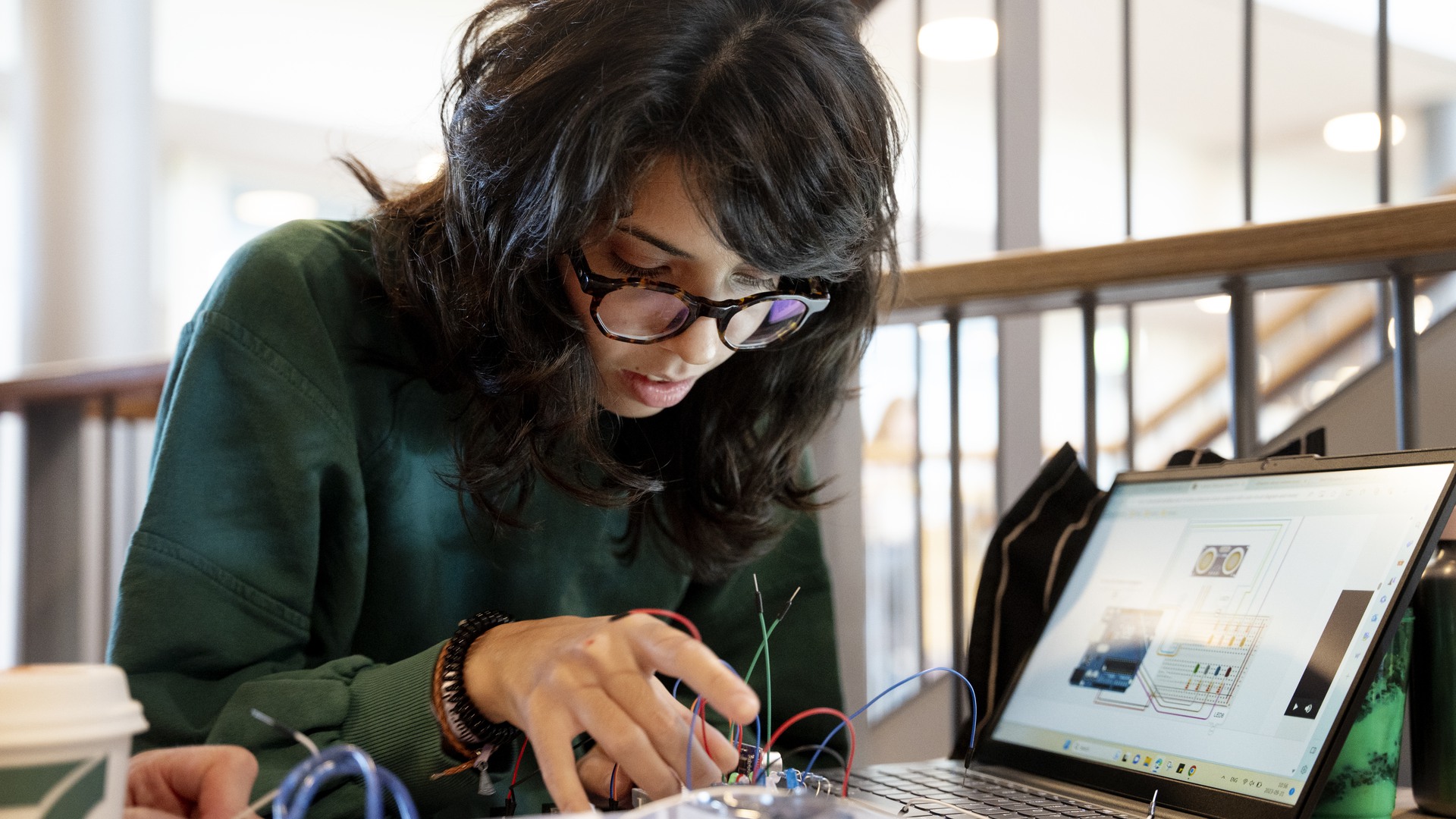EduSinglePage
About the course
The student develops practical experience by creating concrete prototypes to test feasibility and for the evaluation of solutions. In addition to traditional screen-based prototypes, prototyping technologies include physical prototypes and digital manufacturing.
This course is offered as part of programme:
Course content
In the course, digital, physical and service prototypes are designed and developed from a user perspective. The course covers advanced prototyping techniques that combine software, hardware and manufacturing technology that enable the rapid development of prototypes. The following prototyping techniques are included:
- Prototyping on different screens (e.g. computer, mobile)
- Prototyping for different senses (e.g. movements, voice, vision)
- Microcomputers (e.g. Arduino, RaspberryPi)
- Digital manufacturing (3D printing, laser cutting)
- Physical prototyping (e.g. wood, plastics)
Entry requirements
1. Bachelor's degree or equivalent of at least 180 credits in the subject of computer science or related and relevant subjects. Examples of such subjects include informatics, computer and information science, information systems, interaction design, human-computer interaction and media technology.
2. At least 15 credits in programming, system development or equivalent.
3. Knowledge equivalent to English 6 at the Swedish upper secondary level
4. At least a passing grade in the course: Emerging Digital Technologies
In addition to the above formal entry requirements, it is also assumed that the student has acquired knowledge from the course Designing and Evaluating Innovation.
Course literature
Current literature list is available in the syllabus for the course
Course evaluation
The University provides students who are taking or have completed a course with the opportunity to share their experiences of and opinions about the course in the form of a course evaluation that is arranged by the University. The University compiles the course evaluations and notifies the results and any decisions regarding actions brought about by the course evaluations. The results shall be kept available for the students. (HF 1:14).


